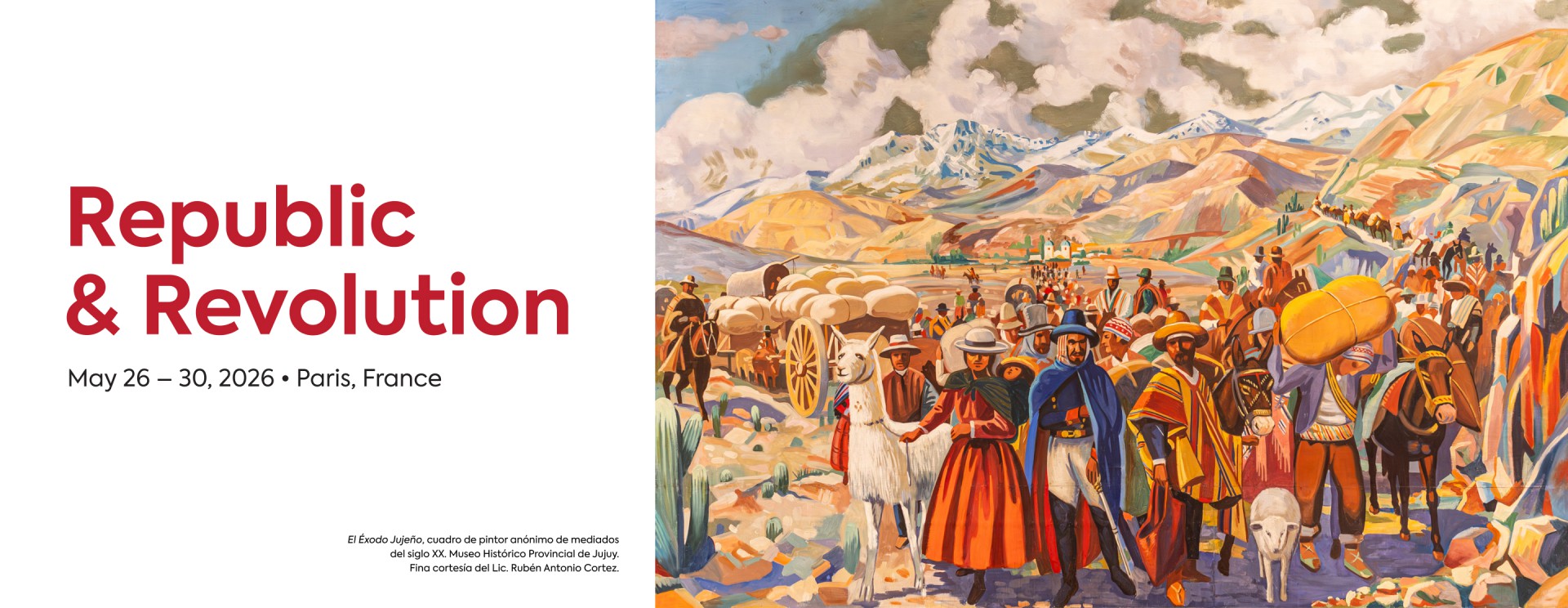About LASA2026
Republic and Revolution
Convening LASA in Paris provides an opportunity to think about Latin America and the Caribbean as a whole and in relation to the larger global forces that have shaped our world over several centuries. We have chosen to situate the region not only in relation to European colonization but also the transformations unleashed by the Atlantic revolutions and the anticolonial struggles that led to the formation of new republics. As Brazilian philosopher Roberto Mangabeira Unger has written in The World and Us, the revolutions of previous centuries are not over, but we need to “breathe new life and new meaning into this revolutionary turn.”
At the heart of the transformations of the Atlantic revolutions is the romantic idea that citizens, regardless of race, creed, gender, or nation, possess inalienable subjective rights. Among the projects pursued by revolutionaries, the liberal, representative republic, which brought citizens together as equal consociates to form representative governments, agreeing (often by constitution-making) upon just laws, was embraced as the best arrangement to provide as much freedom as compatible with their mutual security and prosperity. Furthermore, this ideal polity was possible because of the perfectibility of the rational individual.
Yet, the emancipatory, egalitarian, and fraternal ideals of the liberal and representative republic have tended to coexist with empires, slavery, dispossession, odious debts, and repression. While the French Revolution introduced the colonies to the Declaration of the Rights of Man and the Citizen, it also introduced them, as Alejo Carpentier observed in his novel El siglo de las luces, to the violence of the guillotine. France imposed crippling reparations on Haiti’s revolutionary republic until 1947. The revolutionary spirit at Cádiz hastened Latin American independence in search of liberty and prosperity, but liberal republics also intensified dispossession of Indigenous peoples in the name of private property and free trade – similar to what neoliberalism has done in our times.
In addition to these contradictions, we are today besieged by the counter-revolutionary forces of ethno-nationalism, xenophobia, religious fundamentalism, patriarchal familism, white supremacy, and racial capitalism. The adversaries of the liberal and representative republic, in alliance with neoliberal forces, have promoted technocratic and oligarchic modes of rule that undermine the social basis of representation and popular participation. Added to this is the public demand for effective solutions to gang violence and organized crime, to which political leaders have responded with punitive measures that undermine fundamental rights and freedoms but do not solve the underlying problems of precarity and social exclusion. When republics have become systemically corrupt, disproportionately benefiting the powerful few to the detriment of the majority, then the state apparatus itself becomes a guarantor of corruption.
Is it still possible to build what Argentine political scientist Guillermo O’Donnell called “citizens’ democracies” with a shared respect for freedom, human rights, social justice, and the possibility of human life in harmony with nature? Can liberalism’s deep commitment to individual autonomy and anti-paternalism be retained, and even enhanced with participatory innovations, recognizing the need for more active forms of citizenship? Can we reclaim the public sphere from corrupt practices and renew a commitment to the common good without demanding allegiance to parochial communities? Can we educate human (and nonhuman, mechanical as well as biological) agents for democracy, citizenship, and freedom without imposing a vision that forecloses alternatives? Can decolonization provide an elusive synthesis of socalled Western notions of the common good and Indigenous traditions of buen vivir?
We invite LASA members to explore whether it is still possible to imagine revolutionary and republican ideals, and the paths that lead to shared egalitarian visions of transformative change that embrace truths grounded in diverse life forms and at the same time bring us together as autonomous and equal agents under just laws.
- Can we find the basis of solidarity beyond the nation state in new forms of communal organization, religious affiliation, diverse identities, ecological principles, or posthuman values?
- If we set aside the abstract individualism that erases embodied histories and communities, can we find a truer universalism in difference and pluralism? In what ways do embodied practices suggest new utopias, and how are bodies used to construct contemporary revolutionary idioms?
- How can we reinvent or reimagine the idea of the republic and popular sovereignty for a globalized world in which technologies of social communication are constantly changing and the public sphere is fragmenting?
- What is the role of technology—letters and print, numbers and data, images and sounds, celluloid and electronics, and other media of communication and representation—in the revolutionary republican arrangements that emerge in literature and culture, and how do we engage them through our research, learning, and public engagement?
With this reflection on revolution and alternative republics, we seek to further a conversation about the future of republican revolutions in which we may reimagine the role of Latin America and the Caribbean in the world, and speak and write for the world from the region. In this way, we hope to build bridges among disciplines, between academics and practitioners, and contribute to the continuing relevance, dynamism, inclusiveness, and pluralism of our association.
